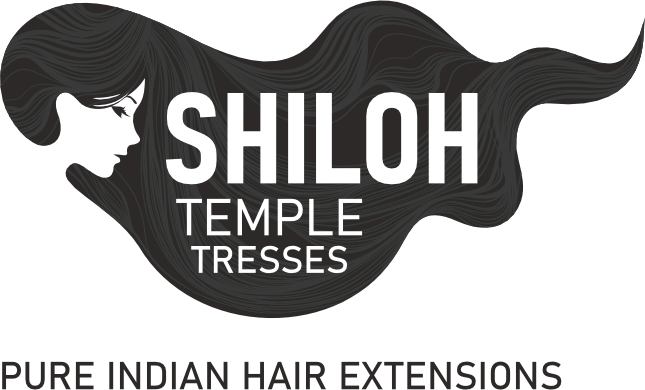For individuals with thin or fine hair, finding the right hair extensions can be a game-changer. Hair extensions not only add volume and length but also boost confidence by giving a fuller, more luscious look. However, choosing the best type of hair extensions for thin hair can be challenging. The wrong type can lead to damage, discomfort, and an unnatural appearance. This guide will help you navigate the different options, ensuring that you select the perfect extensions for your thin hair. We will also address the question, is hair extensions good for thin hair, and discuss the male best type of hair extensions for thin hair. Understanding Thin Hair and Its ChallengesThin hair is characterized by strands that are fine in texture and sparse in density. People with thin hair often find that their hair lacks volume and is prone to breakage. This can make it difficult to achieve certain hairstyles or maintain a full, healthy look. Thin hair is also more susceptible to damage from styling tools, harsh chemicals, and heavy hair extensions. When it comes to choosing hair extensions for thin hair, it’s crucial to select options that are lightweight, easy to apply, and gentle on your natural hair. The goal is to enhance the appearance of your hair without causing further thinning or breakage. Is Hair Extensions Good for Thin Hair?One of the most common questions is is hair extensions good for thin hair? The answer is yes, but with some important considerations. Hair extensions can be an excellent solution for adding volume and fullness to thin hair, but it’s essential to choose the right type and method of application. Thin hair requires extensions that are lightweight and less likely to cause strain on the natural hair. Heavy or improperly applied extensions can pull on the hair and scalp, leading to hair loss or damage. Additionally, the method of attachment should be gentle to avoid placing too much tension on fragile strands. Overall, when chosen and applied correctly, hair extensions can be a great way to enhance thin hair without causing harm. Best Types of Hair Extensions for Thin HairThere are several types of hair extensions available, each with its own set of advantages and disadvantages. For individuals with thin hair, the following types of extensions are generally considered the best options: Tape-In Hair Extensions: Tape-in extensions are one of the most popular options for thin hair. These extensions are lightweight and are attached to your natural hair using a medical-grade adhesive tape. The tape lies flat against the scalp, making them virtually undetectable and comfortable to wear.The biggest advantage of tape-in extensions for thin hair is that they do not cause excessive strain on the natural hair. The weight is evenly distributed, reducing the risk of damage or breakage. Additionally, tape-ins are reusable and can last 6 to 8 weeks with proper care.However, tape-in extensions require professional application and removal to avoid damaging the natural hair. They also need regular maintenance, as the adhesive can lose its strength over time.Clip-In Hair Extensions: Clip-in extensions are another great option for thin hair, especially if you’re looking for a temporary solution. These extensions come in wefts that can be clipped onto your natural hair, allowing you to add volume and length whenever you desire.Clip-ins are easy to apply and remove, making them perfect for special occasions or daily wear. They do not require any professional application, and you can take them out whenever you like, reducing the risk of damage.For thin hair, it’s important to choose clip-ins that are lightweight and designed for fine hair. Heavier clip-ins can be too bulky and may cause discomfort or strain on the hair.Halo Hair Extensions: Halo extensions are a newer option that has gained popularity for their ease of use and minimal damage risk. These extensions consist of a single weft of hair attached to an invisible wire that sits on top of your head like a halo. The wire is then hidden under your natural hair.Halo extensions are ideal for thin hair because they do not attach directly to your natural hair. This means there is no tension or pulling on the hair and scalp, making them one of the safest options.The downside to halo extensions is that they may not provide as much volume as other types, and they are not suitable for very short hair. However, for those with shoulder-length or longer hair, they can add a natural-looking boost without the risk of damage.Nano Ring Hair Extensions: Nano ring extensions are a type of micro-link extension that uses tiny metal rings to attach individual strands of hair extensions to your natural hair. The rings are much smaller than those used in traditional micro-links, making them less noticeable and more comfortable for those with thin hair.Nano rings are a great option for adding volume and length while maintaining a natural look. They are lightweight and do not require heat or adhesive for application, reducing the risk of damage.However, nano rings do require professional application and maintenance. They can also be difficult to remove, and if not done correctly, there is a risk of hair breakage.Fusion Hair Extensions (Keratin Bonds): Fusion extensions, also known as keratin bond extensions, involve bonding individual strands of hair extensions to your natural hair using a keratin-based adhesive. These extensions provide a very natural look and can be styled just like your own hair.Fusion extensions are lightweight and durable, making them suitable for thin hair. The keratin bonds are flexible and move naturally with your hair, reducing the risk of strain or damage.The downside to fusion extensions is that they require a lengthy application process and must be applied by a professional. They are also one of the more expensive options, and improper removal can cause significant damage to the natural hair.Male Best Type of Hair Extensions for Thin HairWhile hair extensions are often associated with women, men with thin hair can also benefit from the right extensions. The male best type of hair





